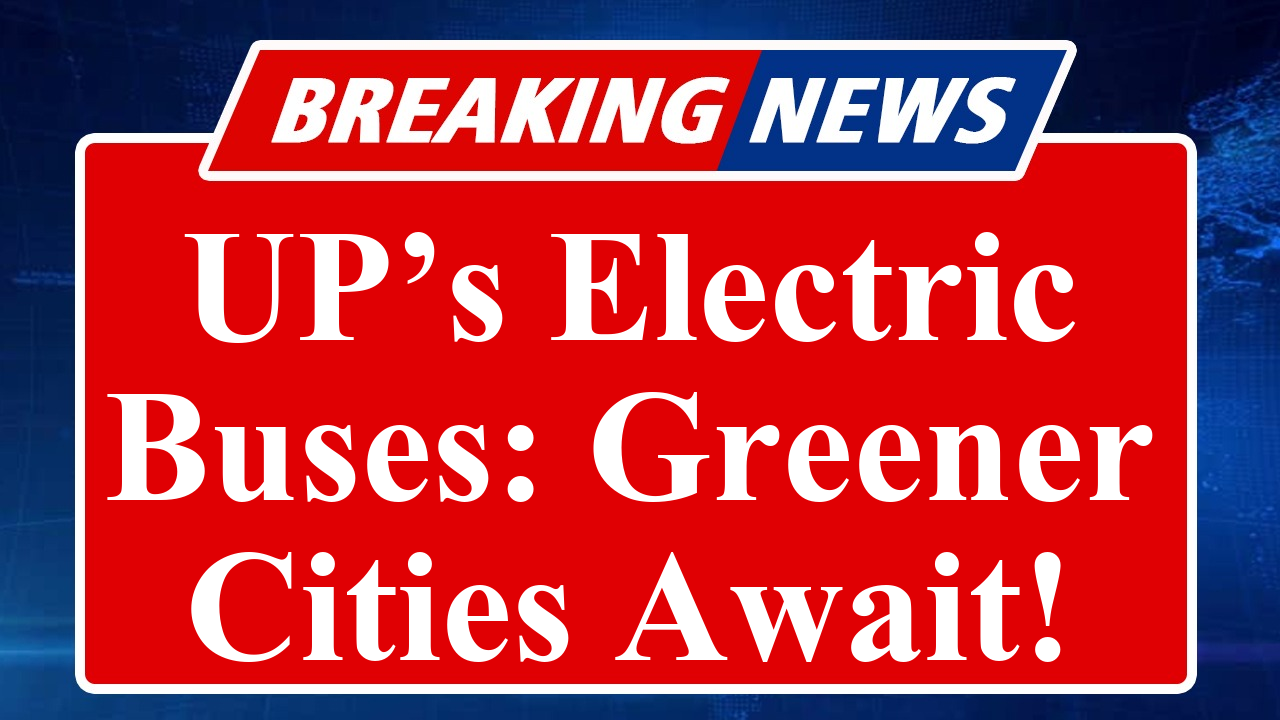“Uttar Pradesh is set to launch 120 electric buses across NCR cities, enhancing eco-friendly public transport. Supported by government incentives, this initiative aims to reduce pollution and operational costs while expanding sustainable mobility. The phased rollout targets major routes, aligning with India’s green transport vision.”
UP Roadways Rolls Out Electric Buses for Greener NCR
Uttar Pradesh State Road Transport Corporation (UPSRTC) is gearing up to introduce 120 electric buses across National Capital Region (NCR) cities, marking a significant step toward sustainable urban mobility. This initiative, announced in August 2024, aligns with India’s broader push to decarbonize public transport and combat air pollution in one of the country’s most polluted regions. The deployment will begin with major routes in cities like Lucknow, Aligarh, Moradabad, Ayodhya, and Gorakhpur, with 30 buses each allocated to Aligarh and Moradabad, and 20 each to Lucknow, Ayodhya, and Gorakhpur.
The electric bus project is backed by central and state-level incentives, including the PM E-Bus Sewa Scheme and the Faster Adoption and Manufacturing of Electric Vehicles (FAME) framework. These programs provide financial and technological support to state transport undertakings, ensuring smoother adoption of electric mobility. The buses, procured through a tendering process set to commence soon, are expected to lower operational costs compared to diesel buses, offering long-term economic benefits alongside environmental gains. According to industry estimates, electric buses can reduce carbon emissions significantly, with each bus potentially saving thousands of tons of CO2 over its operational life.
This move comes as part of UPSRTC’s vision to expand its green transport footprint. The state has already deployed 40 electric buses in Lucknow under the first phase of the FAME India Scheme (2015-2019). The new fleet will build on this foundation, leveraging advanced technologies like fast-charging lithium-ion batteries and modern amenities such as real-time passenger information systems, CCTV cameras, and panic buttons for enhanced safety. The rollout will occur in phases, prioritizing high-traffic routes to maximize impact on urban mobility and air quality.
Nationwide, India’s electric bus market is gaining momentum. In the first half of 2025, the country registered 2,100 electric buses, a 33% increase from the previous year, driven by manufacturers like PMI Electro Mobility, Switch Mobility, and Olectra Greentech. Uttar Pradesh’s initiative complements this trend, contributing to the national goal of deploying 100,000 electric buses by 2030 under the proposed Bharat Urban Megabus Mission. This ambitious plan aims to make public transport the preferred mode for 60% of motorized trips by 2030, reducing reliance on private vehicles and easing urban congestion.
Challenges remain, including the need for robust charging infrastructure and skilled workforce training. Experts emphasize that expanding charging stations in NCR cities will be critical to ensuring seamless operations. Additionally, the high upfront costs of electric buses, which can be 30-70% more than diesel counterparts, necessitate innovative financing models like the Gross Cost Contracting (GCC) system, where private operators manage buses while UPSRTC collects fares. This approach reduces financial strain on the state while promoting scalability.
The environmental impact of this initiative cannot be overstated. NCR cities, notorious for poor air quality, stand to benefit from reduced vehicular emissions. Electric buses are projected to cut down on diesel consumption and CO2 emissions significantly, aligning with India’s commitment to net-zero emissions by 2070. As Uttar Pradesh takes this leap, it sets a precedent for other states, reinforcing the role of public transport in building sustainable, livable cities.
Disclaimer: This article is based on recent news reports, government announcements, and industry data related to Uttar Pradesh’s electric bus initiative. Information is sourced from credible outlets like Hindustan Times, Sustainable Bus, and Urban Transport News. Readers are advised to verify details with official sources for the latest updates.

